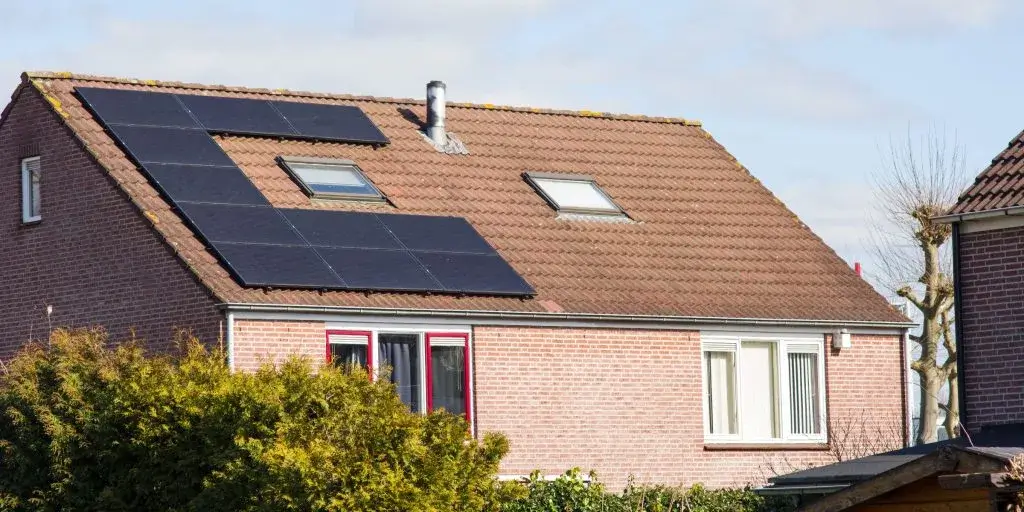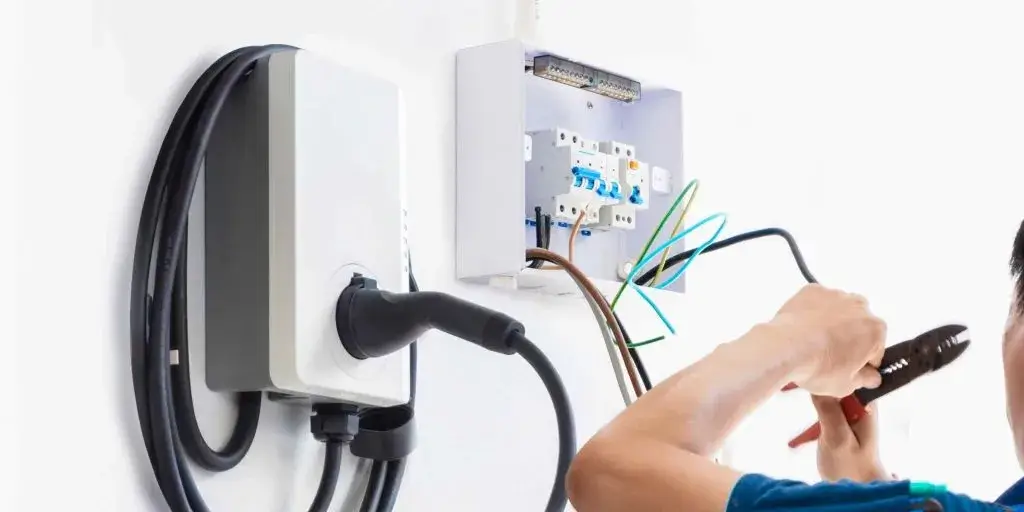Are you thinking about making the switch to solar but unsure which option is best for your home? Solar PV systems are becoming increasingly popular in Ireland for their ability to generate clean, renewable energy while significantly reducing electricity bills.
Off-grid systems offer complete independence from the national grid, making them ideal for remote locations or for those seeking full energy autonomy. Grid-tied systems, on the other hand, provide the flexibility of using both solar power and grid electricity, ensuring you always have a reliable supply.
However, understanding the differences between these two options is crucial to making the right choice for your home or business. In this blog, we will compare Off Grid vs Grid-Tied Solar PV Systems, and help you decide which option best meets your needs.
What is an Off-Grid Solar System?
An off-grid solar system is a stand-alone power solution that operates entirely independently of the national electricity grid. It uses solar panels to generate electricity, which is stored in batteries for use when the sun isn’t shining. This setup is ideal for remote locations in Ireland where grid connection is unavailable or unreliable, and for those who want complete energy independence.
Off-grid systems must be carefully sized to meet year-round energy needs, accounting for shorter winter days. While they offer full autonomy, they require a higher initial investment, mainly due to the cost of batteries and backup systems.
What is a Grid-Tied Solar System?
A grid-tied solar system is connected to the national electricity grid, allowing you to use solar energy when available and draw from the grid when needed. Solar panels generate electricity to power your home first, with any extra power sent back to the grid, potentially earning you credits or payments under export schemes in Ireland.

These systems are generally more affordable upfront as they do not require large battery banks. They provide flexibility, ensuring a consistent energy supply even during cloudy days or at night. However, in the event of a grid outage, most grid-tied systems without battery backup will also lose power.
What is the Difference Between Off Grid vs Grid-Tied Solar PV Systems?
Although both systems use solar energy to generate electricity, they differ in how they connect to the grid, manage energy storage, and handle costs. Understanding these key differences will help you decide which option best suits your lifestyle and budget.
Dependence on the Electricity Grid
An off-grid solar system works completely independently from the public electricity grid, making it a practical choice for remote homes or those seeking full self-reliance. With no connection to external supply, all your household electricity must come from your own generation and storage.
A grid-tied system remains linked to the grid, allowing you to use electricity from it whenever solar production is low. This ensures a steady supply but also means your home’s energy availability is influenced by the grid’s reliability and will stop delivering power during outages unless supported by a battery.
Energy Storage
Off-grid setups require batteries to store the solar energy produced during the day for use in the evenings or during periods of poor sunlight. This storage capability is what makes them self-sufficient, though it adds to both the cost and the complexity of the system.
Grid-tied systems often operate without dedicated battery storage, sending any extra electricity back into the grid. While this reduces costs and simplifies installation, it also means that in the event of a power cut, the system cannot continue providing electricity unless a battery backup is installed.
Cost and Investment
Installing an off-grid solar system generally involves a higher upfront spend because it includes batteries, a more advanced inverter, and sometimes a backup generator. Over time, these systems can eliminate energy bills completely, but the initial investment is significant.
Grid-tied systems are more budget-friendly at the start, mainly because they rely on the grid instead of large battery storage. They can also take advantage of Irish grants or export payments, helping homeowners recover costs more quickly.
Installation Complexity
Off-grid installations are more involved, with additional components like batteries, charge controllers, and sometimes backup generators. Proper design is vital to ensure your system meets your energy needs year-round, particularly in the darker winter months.

Grid-tied systems are simpler to set up, consisting mainly of panels, an inverter, and the grid connection. Without the need for large-scale storage, the installation process is faster and less technically demanding.
Maintenance and Upkeep
Off-grid systems require ongoing attention, especially for battery health. Batteries will eventually need replacing, and keeping the system in top condition demands regular checks and upkeep.
Grid-tied systems need less hands-on maintenance as they lack large battery banks. Their reliance on the grid means you can still have power during servicing, making downtime less of a concern.
Off-Grid Vs. Grid-Tied Solar System: Which is Better for Homeowners
Choosing between an off-grid and a grid-tied solar system comes down to your location, energy needs, and lifestyle. For remote properties or those seeking total energy independence, off-grid systems offer self-sufficiency but require a higher initial investment and ongoing management.
Grid-tied systems, ideal for areas with dependable grid access, are more affordable to install, simpler to maintain, and can significantly reduce electricity costs, especially with incentives like net metering. While they do depend on the grid’s reliability, they provide a practical and convenient option for most urban homeowners looking to enjoy the benefits of solar power without complete detachment.
Conclusion
Choosing between off-grid and grid-tied solar PV systems depends on your energy goals, location, and budget. Off-grid systems provide total independence and are ideal for remote properties, while grid-tied systems offer affordability, simplicity, and the convenience of staying connected to the national grid. Both options can lower your carbon footprint and reduce electricity costs, with the right choice customised to your lifestyle.
At My Power, we specialise in designing and installing solar PV systems that suit your needs perfectly. Contact us today for expert advice, and a smooth transition to clean, renewable energy for your home.
Frequently Asked Questions
What is the main difference between off-grid and grid-tied solar systems?
The main difference lies in how they connect to the electricity grid. Off-grid systems operate independently and rely on battery storage, while grid-tied systems remain connected to the grid, allowing you to draw power when solar generation is low and export excess energy when it’s high.
Which solar system is better for remote homes in Ireland?
For remote homes without reliable access to the national grid, an off-grid solar PV system is usually the better choice. It provides complete energy independence, although it requires a larger upfront investment and ongoing battery maintenance.
Can a grid-tied solar system work during a power cut?
Most standard grid-tied systems will not function during a power outage due to safety regulations. However, adding a battery backup or hybrid inverter can allow your system to continue supplying electricity during outages.
Which option is more cost-effective in the long run?
Grid-tied systems tend to be more cost-effective for most homeowners, thanks to lower installation costs, minimal maintenance, and the potential to earn from export tariffs. Off-grid systems can be economical for remote locations, as they eliminate ongoing grid connection fees.
Do I need batteries for a grid-tied solar PV system?
Batteries are optional for grid-tied systems. Without batteries, excess energy is sent to the grid, and you draw from the grid when needed. Adding batteries increases self-consumption but also raises the initial cost.
How do I decide which solar PV system is right for me?
Consider your location, energy usage, budget, and desired level of independence. Urban homeowners often find grid-tied systems more practical, while rural or remote properties may benefit more from an off-grid setup. Consulting with a specialist like My Power ensures you get a solution customised to your needs.





